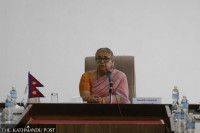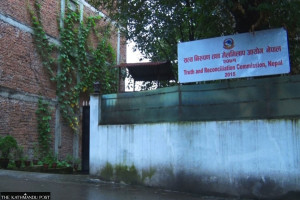Opinion
Coming together
Initiative of various countries to be a member of the Shanghai Cooperation Organisation is encouraging
Surendra Pandey
Many bilateral, regional, and multilateral organisations exist in the world in order to implement the roadmap prepared by the UN Charter—world peace, security and economic prosperity. However, the activities of certain regional organisations sometimes overshadow the scope of work of other multilateral and regional organisations. Brexit is a case in point. Britain’s decision to leave the European Union may appear as a smart decision for the time being, but it has been predicted that the decision would present a challenge to the UK in terms of security and prosperity in the long run.But more importantly, the UK leaving the EU has compelled other regional organisations, which have been formed or are being formed for regional welfare, to rethink their position regarding membership of various countries.
Against this backdrop, the 16th meeting of the SCO (Shanghai Cooperation Organisation) Council of Heads of State is to convene in Tashkent, the capital of Uzbekistan, on July 23-24 to mark its 15th anniversary. China, Russia, Kazakhstan, Kyrgyzstan, Tajikistan and Uzbekistan founded the SCO in Shanghai, China on June 15th, 2001 to combat terrorists, ethnic separatists and religious extremists, and to foster cooperation among member countries. The SCO has 18 states including founding members, observer states (India, Pakistan, Iran, Afghanistan and Belarus) and dialogue partners (Sri Lanka, Turkey, Azerbaijan, Armenia, Cambodia and Nepal). Meanwhile, India and Pakistan have already started the formal process of joining the SCO as full members.
Vested interests
Assistant Minister of Foreign Affairs of China Li Huilai said that the SCO conference is likely to endorse many decisions to strengthen security, prosperity, and relations in the region at the people’s level. He was confident that the leadership of the member states will have the highest level of understanding to ease development, trade and close relations at people’s level. He also made it clear that China is always ready for trade and infrastructure development of the SCO member states.
In the present context, the initiative shown by the Eurasian and Central Asian countries to become a member of the SCO is encouraging, yet it would be unwise to assume that the difficult relations and mistrust among the countries would be wiped out right away. There are examples of some of the member states of the SCO, while being members of other regional organisations, rendering those organisations ineffective due to their vested interests. The South Asian Association for Regional Cooperation (Saarc) is one example. Hence, the dynamism of the SCO largely depends on far-sighted policies and cooperation for mutual benefits.
According to the Secretary General of the SCO, Rashid Alimov, the countries that wish to be a part of the organisation need to fulfil all the requirements spelled out in its charter. Once the secretariat investigates the applicant, the decision to grant the membership is a collective decision of all the member states, and it will not be based on the size or the economic status of the country. While talking to press representatives of 18 member states in Beijing, Secretary General Alimov said, “The SCO endorses consensus on decision-making and multi-level cooperation covering security, economy and culture. The SCO Tashkent Summit recognises the grave threats of terrorism, separatism and extremism.”
Seizing opportunities
Alimov was of the view that the organisational structure of the SCO and its programmes has not been copied from any other regional body. He claimed that the SCO has announced war against terrorism and all forms of extremism since 2001. According to him, the SCO has already held expert group meetings on trade, energy, roads, financial promotion, environmental stability, science and technology among its member states.
In 2015, according to the purchasing power parity (PPP) standard, the combined GDP (gross domestic product) of the SCO stood at $37 trillion, accounting for one-third of the global amount. Now it is imperative for the SCO member states to seize the opportunities provided by the Chinese initiative of the Silk Road Economic Belt to expand cooperation, upgrade interoperability of infrastructure, and boost trade and investment in the region.
In the last two decades, Beijing has been busy bankrolling development west of its borders, building infrastructure across the region, including in Central Asia, which would allow it to implement massive projects, such as the China-Pakistan Economic Corridor, and expand its economy. It is also important for the SCO to explore
cooperation in e-commerce, green economy and other emerging fields, while strengthening exchanges with the UN and other international organisations to implement sustainable development goals.
Pandey is an assistant editor at Kantipur Television Network




 21.12°C Kathmandu
21.12°C Kathmandu










